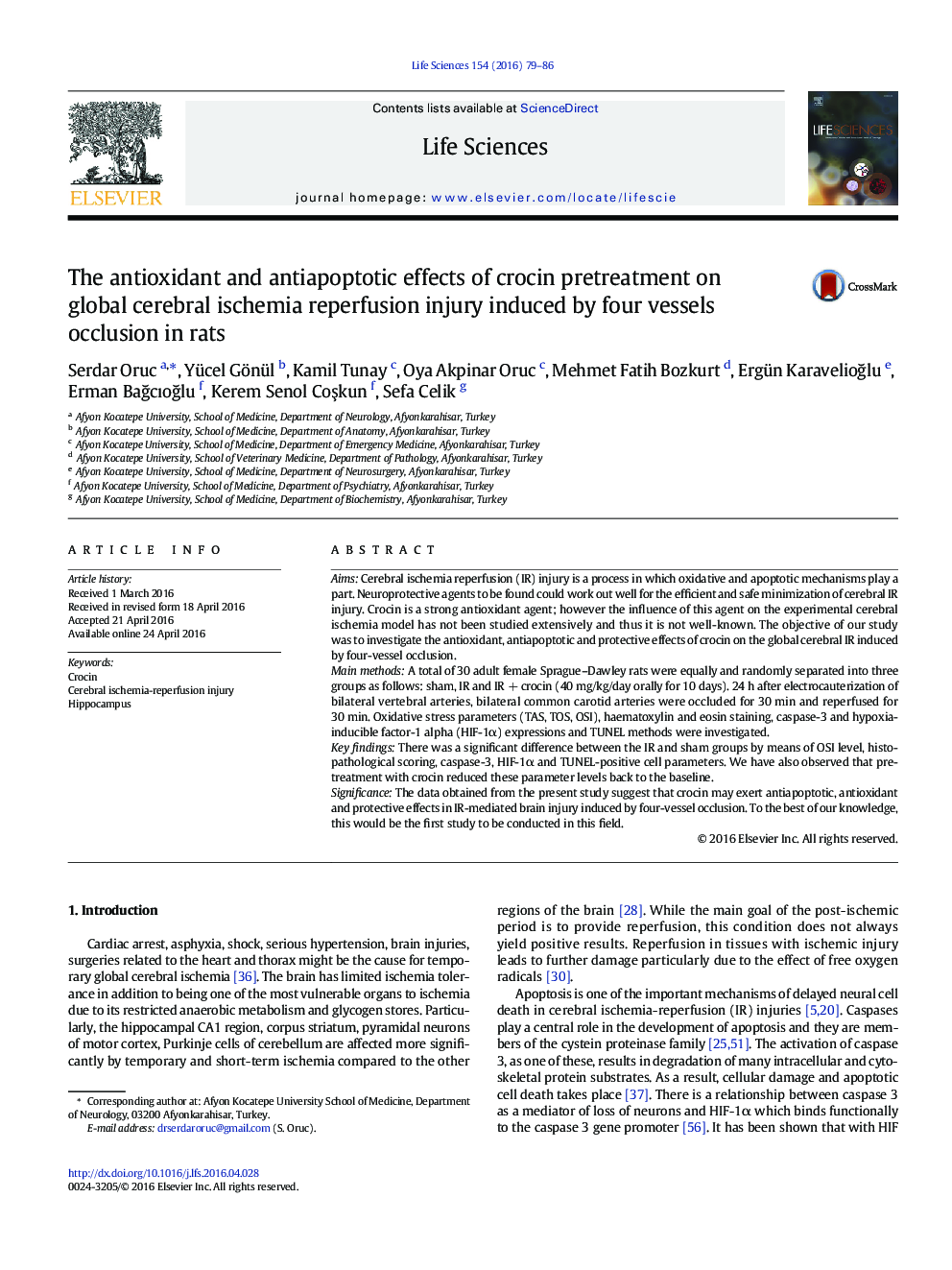| Article ID | Journal | Published Year | Pages | File Type |
|---|---|---|---|---|
| 5841466 | Life Sciences | 2016 | 8 Pages |
AimsCerebral ischemia reperfusion (IR) injury is a process in which oxidative and apoptotic mechanisms play a part. Neuroprotective agents to be found could work out well for the efficient and safe minimization of cerebral IR injury. Crocin is a strong antioxidant agent; however the influence of this agent on the experimental cerebral ischemia model has not been studied extensively and thus it is not well-known. The objective of our study was to investigate the antioxidant, antiapoptotic and protective effects of crocin on the global cerebral IR induced by four-vessel occlusion.Main methodsA total of 30 adult female Sprague-Dawley rats were equally and randomly separated into three groups as follows: sham, IR and IR + crocin (40 mg/kg/day orally for 10 days). 24 h after electrocauterization of bilateral vertebral arteries, bilateral common carotid arteries were occluded for 30 min and reperfused for 30 min. Oxidative stress parameters (TAS, TOS, OSI), haematoxylin and eosin staining, caspase-3 and hypoxia-inducible factor-1 alpha (HIF-1α) expressions and TUNEL methods were investigated.Key findingsThere was a significant difference between the IR and sham groups by means of OSI level, histopathological scoring, caspase-3, HIF-1α and TUNEL-positive cell parameters. We have also observed that pre-treatment with crocin reduced these parameter levels back to the baseline.SignificanceThe data obtained from the present study suggest that crocin may exert antiapoptotic, antioxidant and protective effects in IR-mediated brain injury induced by four-vessel occlusion. To the best of our knowledge, this would be the first study to be conducted in this field.
